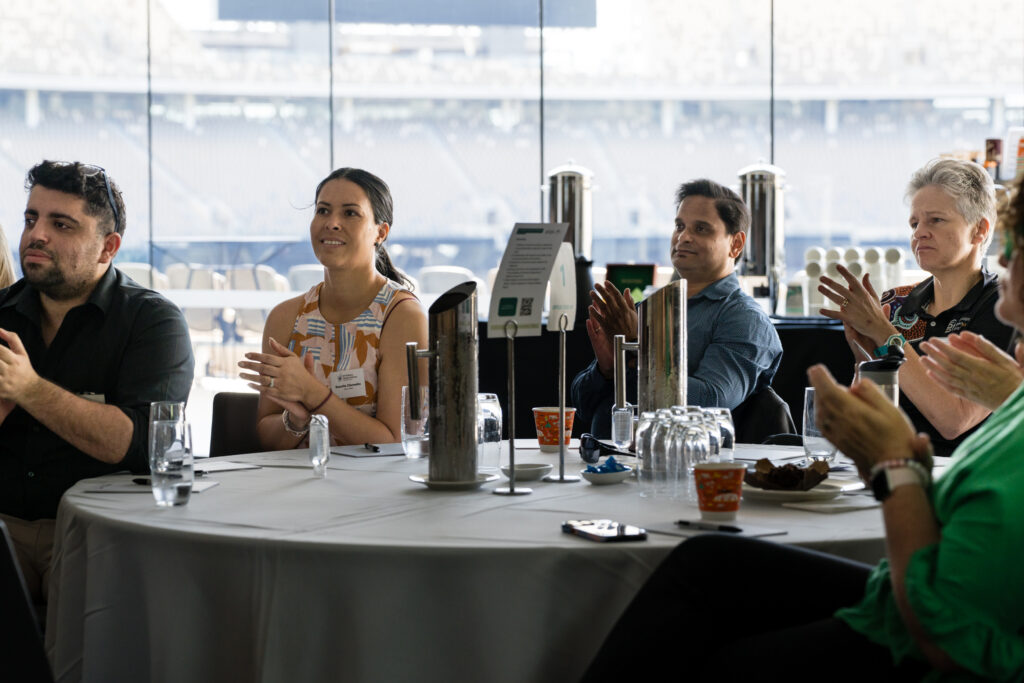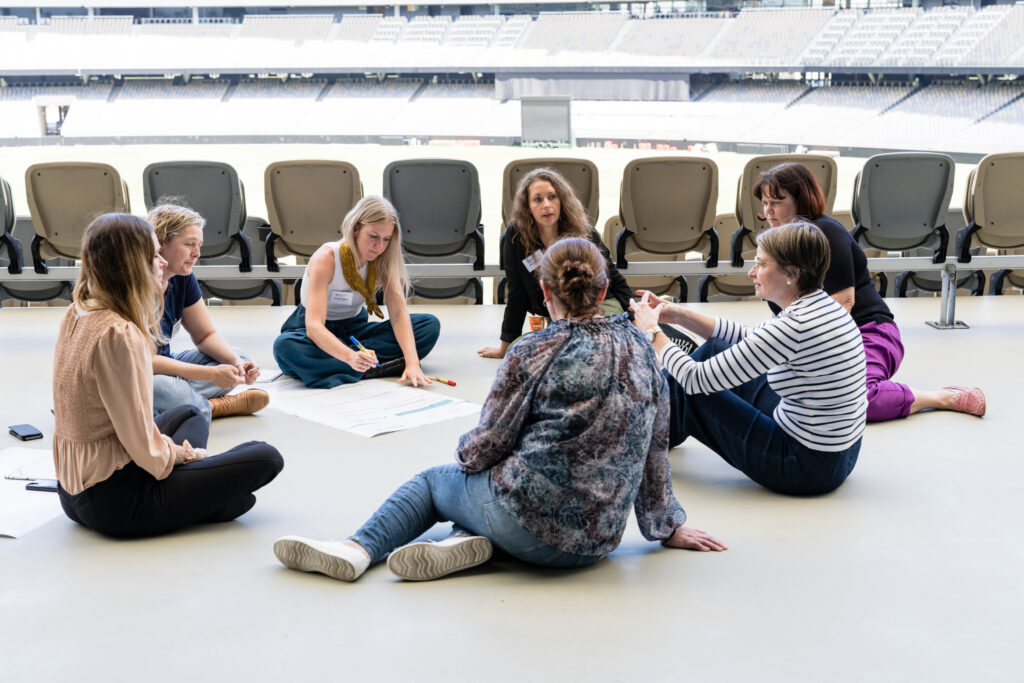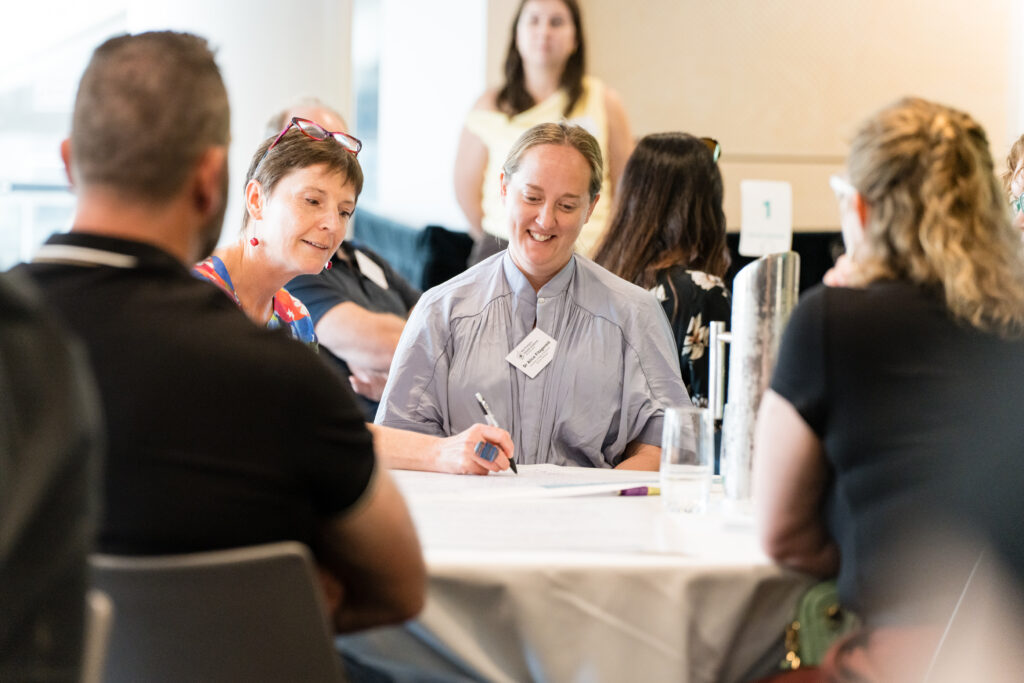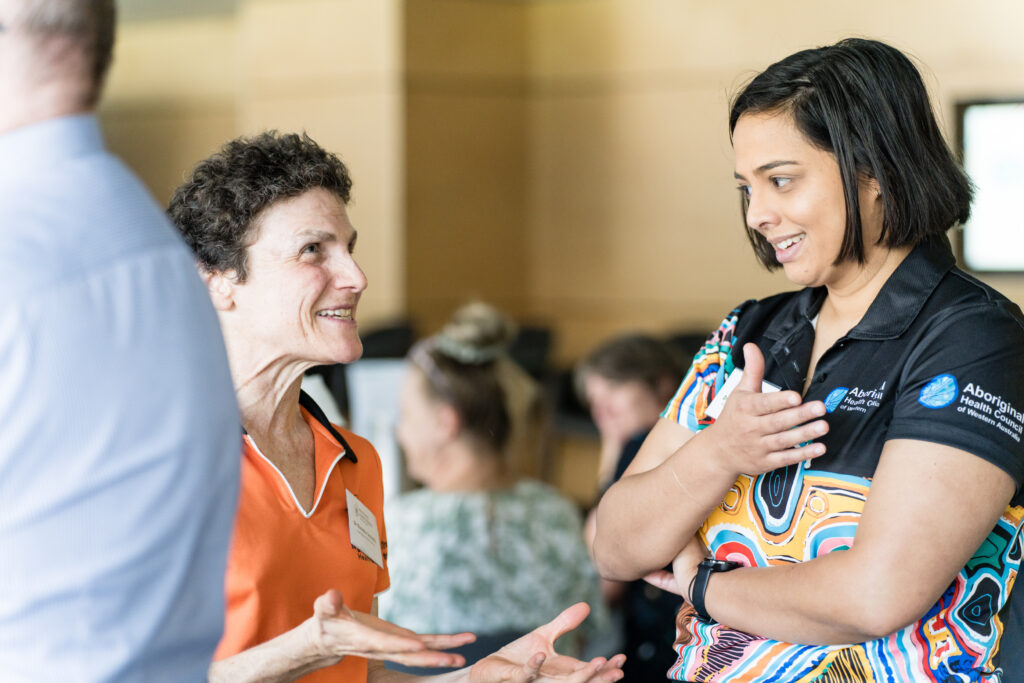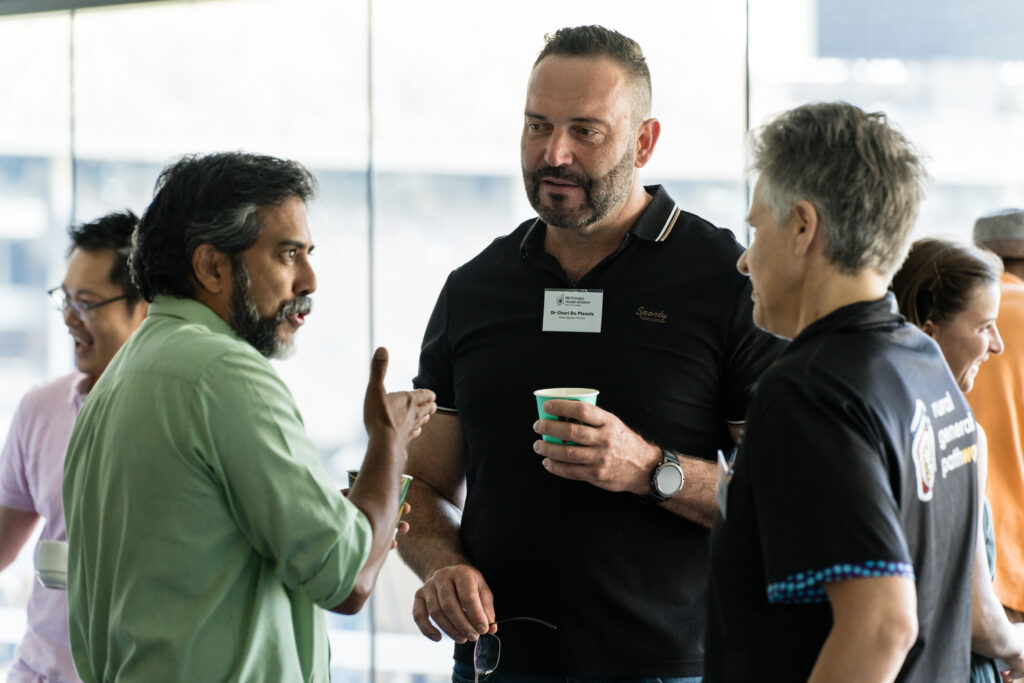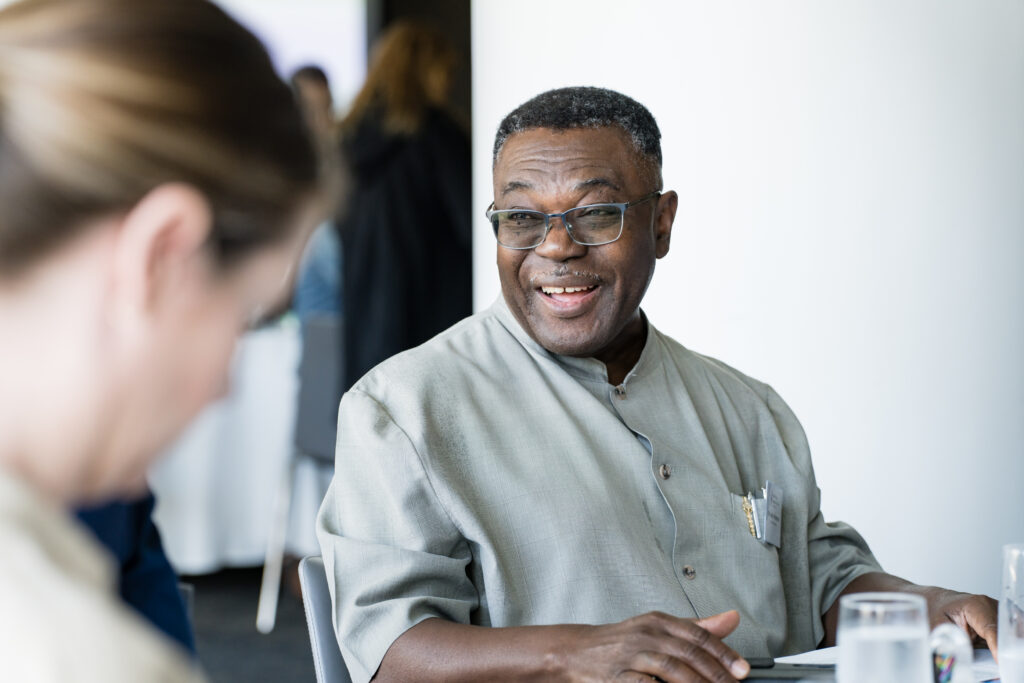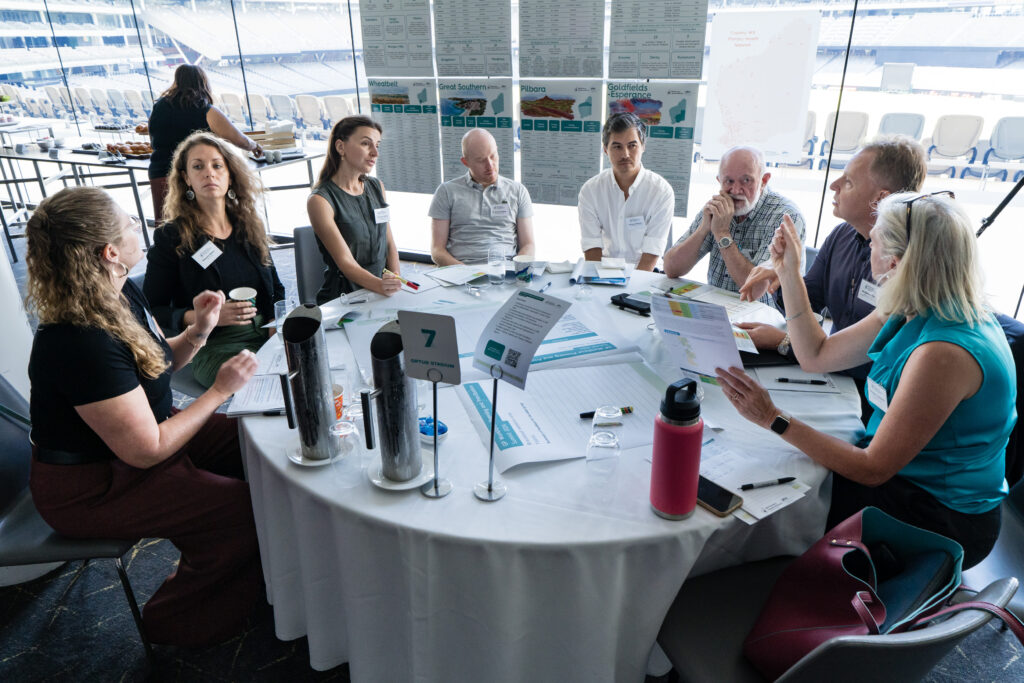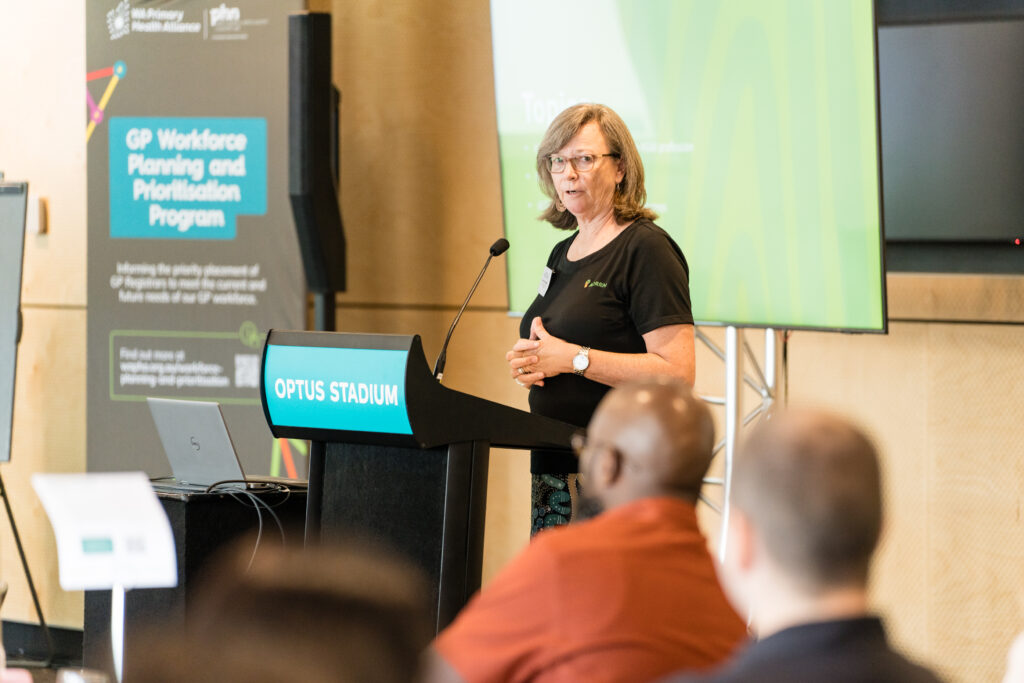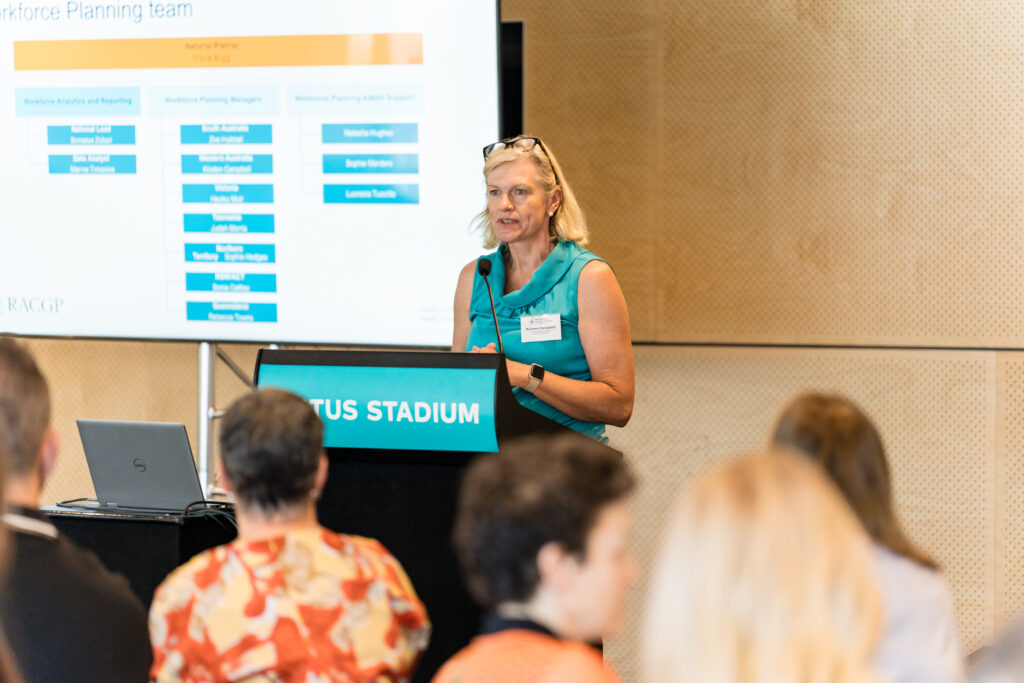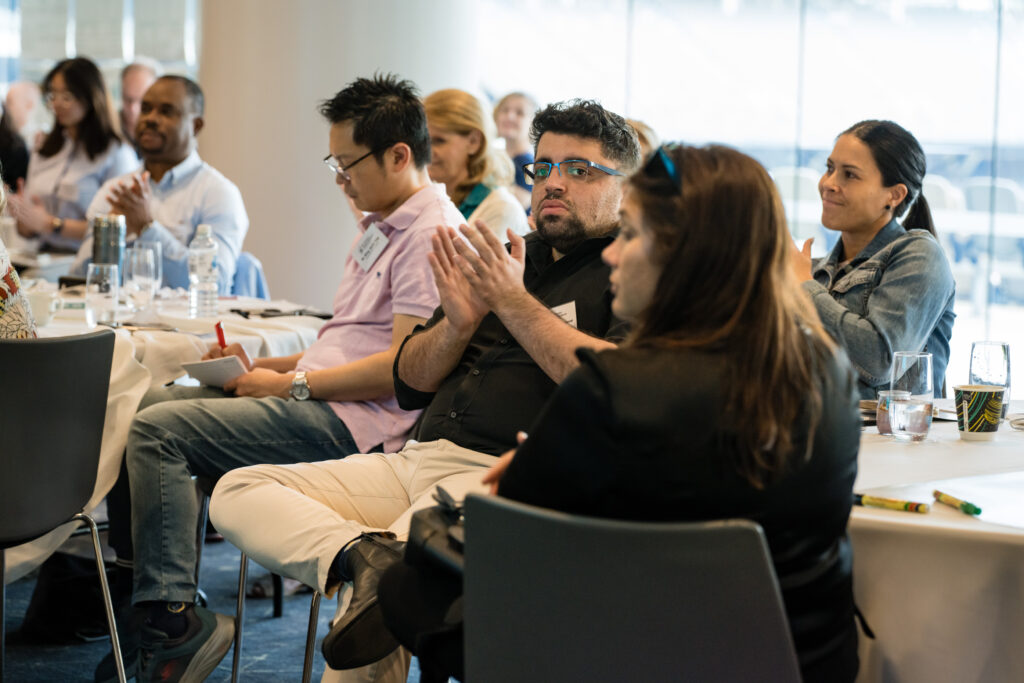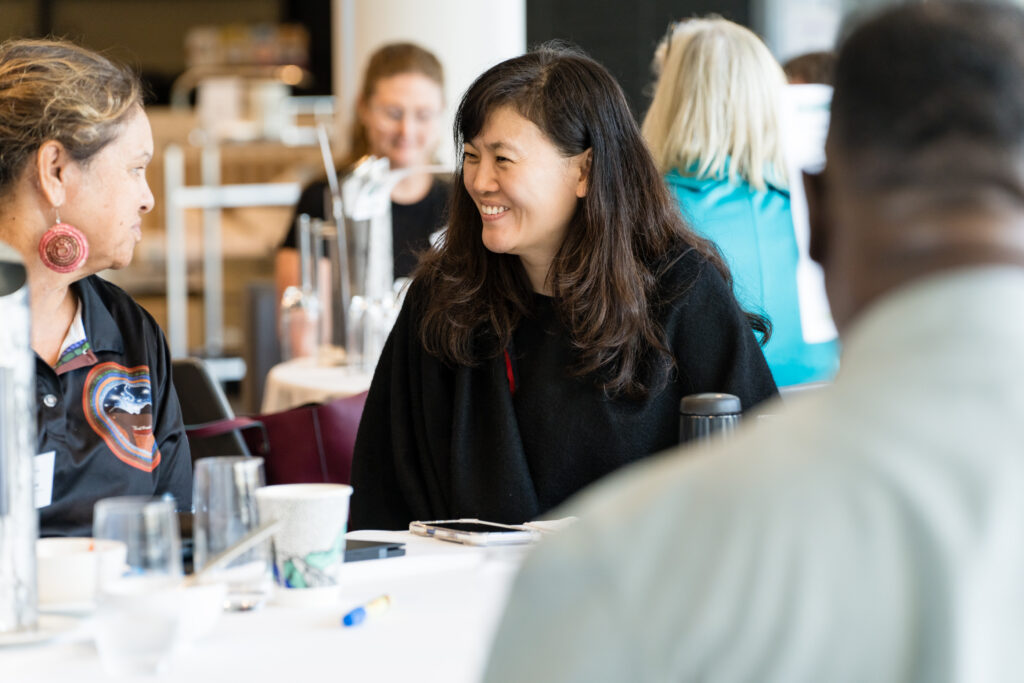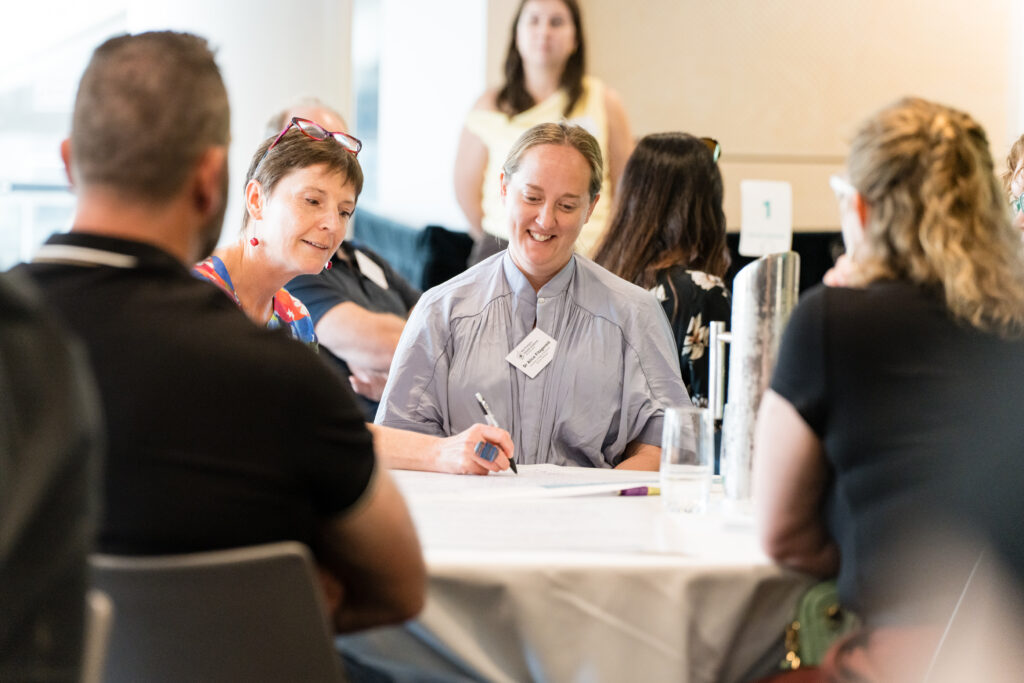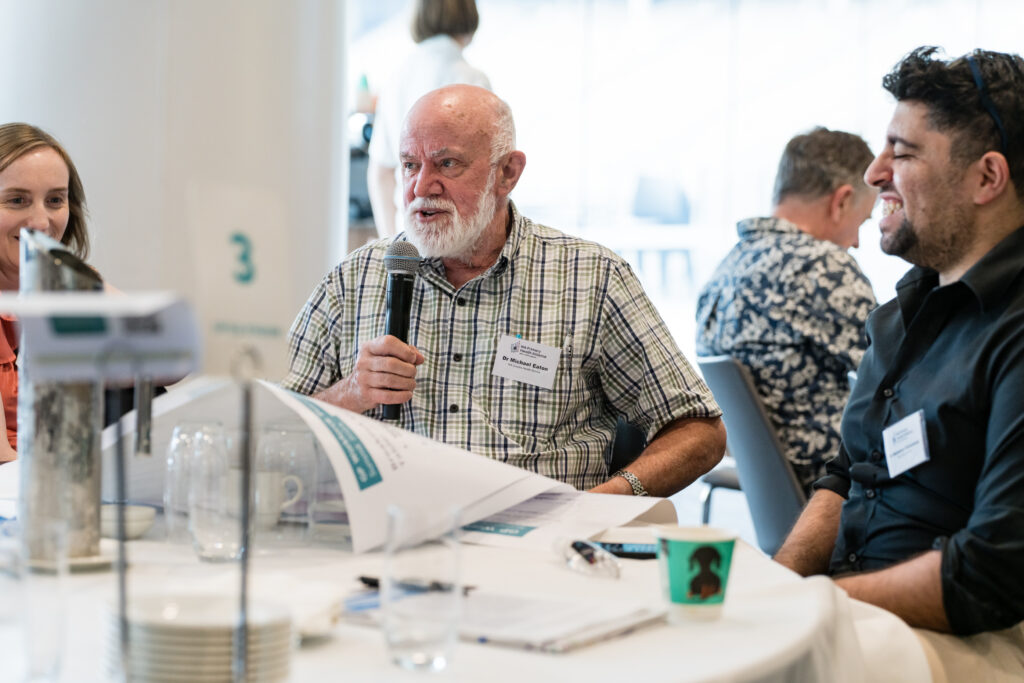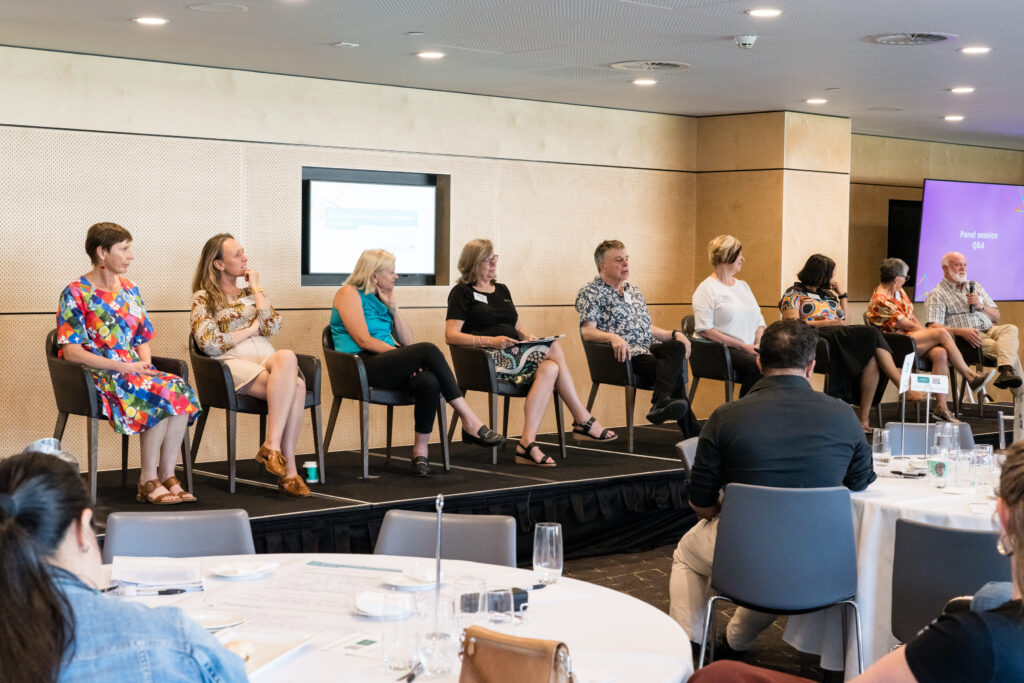WA Primary Health Alliance’s recent GP Workforce Planning and Prioritisation Summit provided the opportunity for GPs and key stakeholders from across Western Australia’s regional, rural and remote areas to collaborate, network and share learnings to strengthen the GP Registrar workforce in country regions in WA.
More than 60 GPs and key stakeholders came together and engaged in dynamic discussions, sharing insights and strategies to address the challenges with GP workforce shortages.
WA Primary Health Alliance CEO, Learne Durrington, said with WA facing challenges with GP workforce shortages, particularly in rural and remote areas, it is important we get this right.
“The state is not producing enough GP trainees to maintain current service levels, let alone meet future demand and we are seeing challenges in recruiting and retaining GPs to rural and remote areas.
“The GP workforce in WA is aging, with a changing gender balance and an increasing trend towards part-time work. The shortage of vocationally registered GPs has also had significant implications for WA’s GP training capacity.
“The event provided a valuable platform for networking, allowing stakeholders to build connections and foster relationships.
“There are great examples of innovative models of supervision and shared pathways being used across the state.
“These conversations highlighted the importance of collaboration and need for innovative solutions to ensure a robust and sustainable GP workforce now and into the future.”
The Australian Government Department of Health and Aged Care Director GP Training Programs and Performance Section, Eleanor Newby, said the WAPHA led GP Workforce Planning and Prioritisation Summit was an exceptional gathering of experts, policy makers and practitioners committed to shaping the future of the GP registrar workforce in Western Australia.
“Hearing directly from GPs from all across rural and remote WA was an invaluable experience – I will be taking many on the ground insights back to the department.”
There was representation from the Australian Government Department of Health and Aged Care Workforce Division, Australian College of Rural and Remote Medicine, Royal Australian College of General Practitioners, Rural Health West, Rural Clinical School of Western Australia, WA Country Health Service, Aboriginal Health Council of Western Australia and the Office of the Chief Medical Officer.

